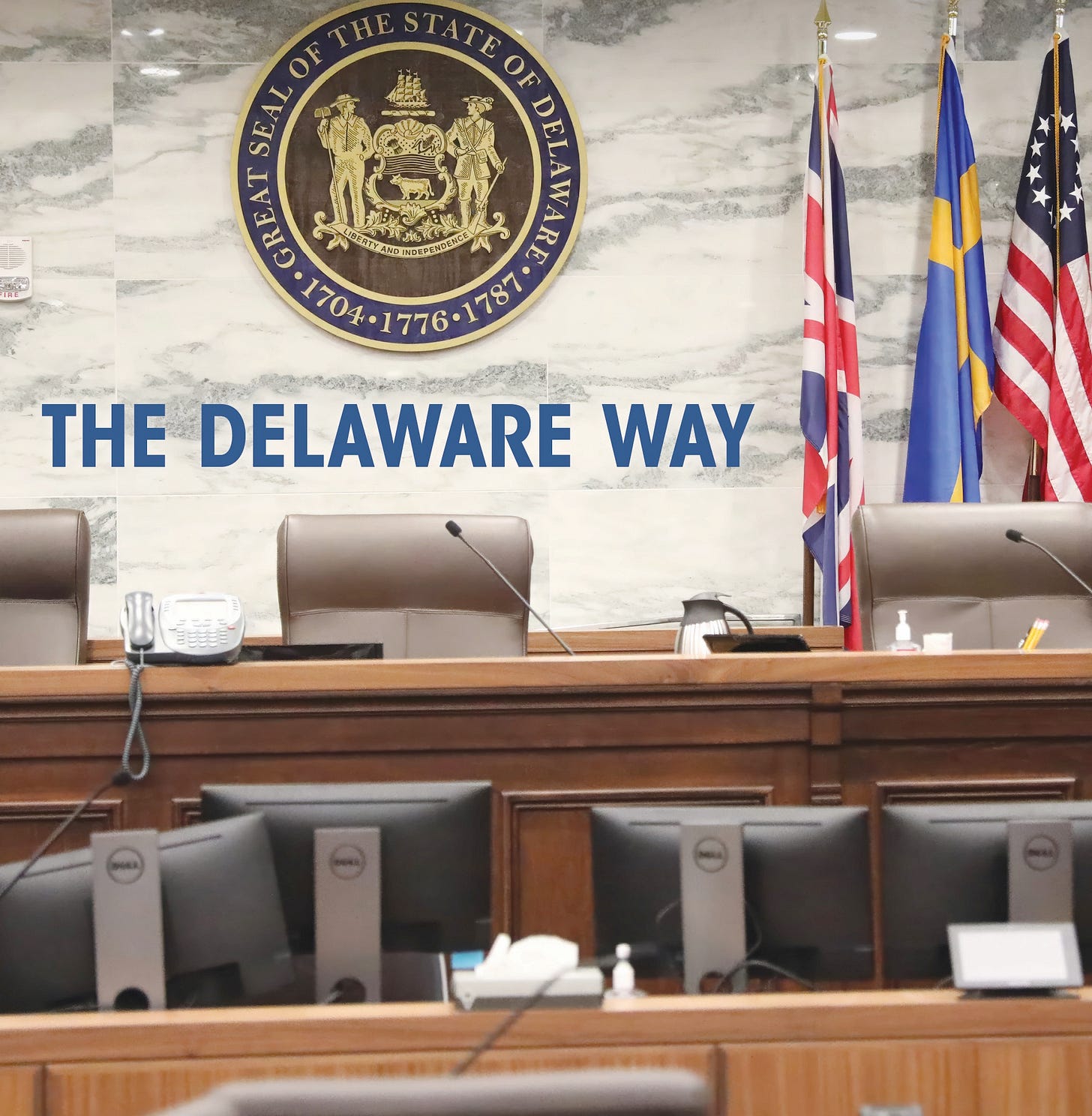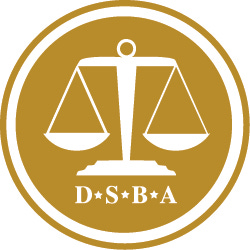Making Delaware Corporate Law: The Players' Incentives Part I
The legislature
Delaware corporate lawmaking used to be a fairly staid, stolid, and frankly sort of boring affair. To be sure, there were occasional raised eyebrow moments. But for the most part things sailed along pretty smoothly.
At the core of the so-called Delaware Way, the Delaware Chancery and Supreme Courts churned out dozens of opinions per year, providing a knowledge base whose depth and quality was unmatched and which thereby was one of the things that made Delaware incorporation so attractive. Sure, one occasionally got opinions—especially from the Supreme Court—that went off the rails. Usually those cases were less about doctrine and more about the Supreme Court smacking down some member of Chancery who had gotten too big for their britches (in the Supreme Court’s opinion). One thinks of the way the Supreme Court went out of its way to smack around former Chancellor Allen in cases like Paramount Commun., Inc. v. Time Inc., 571 A.2d 1140 (Del. 1989), and the never ending series of decisions in Cinerama Inc. v. Technicolor, Inc., neither of which have stood the test of time. But such eruptions were rare.
Meanwhile, once a year, like clockwork, the Council of the Corporation Law Section of the Delaware State Bar Association drafted amendments to the Delaware General Corporation Law. Those amendments were then sent over to the Delaware legislature, which basically rubber stamped them.
In recent years, however, there have several high profile controversies in which this placid process broke down:
In 2014, the Delaware Supreme Court decision in ATP Tour, Inc. v. Deutscher Tennis Bund, 91 A.3d 554 (Del. 2014), opened the door for corporations to adopt fee shifting bylaws, which require unsuccessful shareholder plaintiffs to pay the corporation's legal fees. The Delaware legislature slammed that door shut, amending the DGCL to prohibit fee shifting provisions in both the certificate of incorporation and the bylaws.
In 2024, Vice Chancellor Travis Laster decided that DGCL § 141(a)—as he interpreted it—invalidated certain widely used shareholder agreements. W. Palm Beach Firefighters' Pension Fund v. Moelis & Co., 311 A.3d 809 (Del. Ch. 2024). In response, the Council sent the legislature a proposed bill that would reverse the Moelis decision. Instead of receiving the usual legislative rubber stamp, however, the bill—SB 313—hit a wall of criticism.
Several legal scholars and jurists, including Delaware Chancellor Kathaleen McCormick, voiced concerns about the speed and timing of the proposed legislation—particularly since it was introduced before the Delaware Supreme Court had ruled on an appeal. In a seven-page letter to the Delaware State Bar Committee, McCormick highlighted these issues. According to Law360, Vice Chancellor Travis Laster (speaking in a personal capacity) also questioned aspects of Senate Bill 313, arguing that critics’ claims about the Moelis decision endangering thousands of agreements were exaggerated and “smacked of hyperbole.” The debate intensified when more than 50 law professors submitted a letter to the Delaware legislature—published on the Harvard Law School Forum on Corporate Governance—opposing the amendments. Additional critical commentary from prominent scholars appeared on both the HLS Forum and the CLS Blue Sky Blog, with just a single post expressing support. In the Delaware House, the bill faced significant resistance in committee, where lawmakers expressed frustration over its complexity and the pressure to push it through quickly.
Yet, SB 313 ultimately more or less sailed through.
Then, this spring, the system truly broke down with the fighting over SB 21. We have covered that episode here in detail, so I will simply refer interested readers to my explainer. In brief, however, not only did the legislation reverse multiple judicial decisions—including a high profile case involving Elon Musk that was still a live matter—but the process bypassed the Council and state bar.
All of which raises two questions. First, why does the Delaware Way usually work so smoothly? Second, why does it occasionally break down so spectacularly? Answering them requires us to think about the incentives of the players involved: the state bar, the legislature, and the judiciary. In this post, I focus on the state legislature.
Keep reading with a 7-day free trial
Subscribe to Bainbridge on Corporations to keep reading this post and get 7 days of free access to the full post archives.



